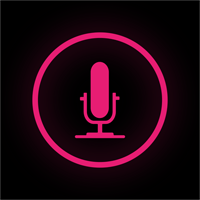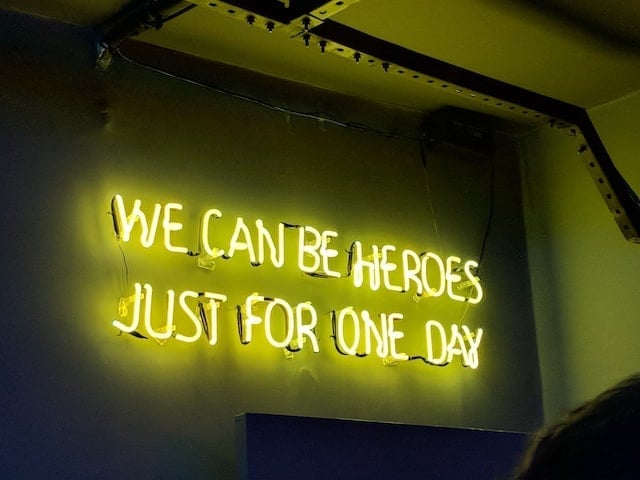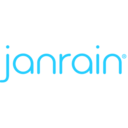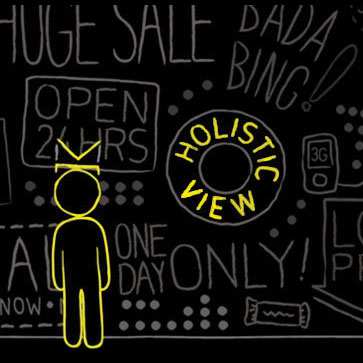A Look at How to Monetize Podcasts

The chances are great that you have either listened to a podcast, thought about starting one or have been told you have to listen to your friend's favorite one.
Podcasting is not new, of course, and search interest in this medium was actually higher in 2013 than it is today. Actual behavior concerning podcasts has changed though as people are more familiar with what podcasting is and where to find ones suiting their interests than ever before. 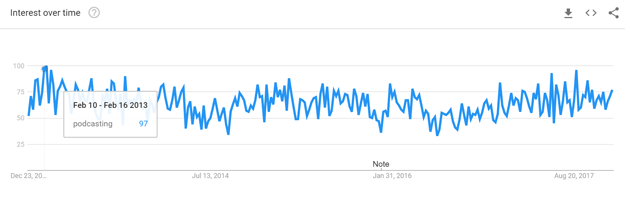
(Image Source: Google Trends)
This year, for example, Edison Research and Triton Digital found that 24 percent of Americans age 12 or older have listened to a podcast in the past month, up from 21 percent one year ago. Six in ten Americans are also familiar with the term "podcasting," up 22 percent in two years.
Some of the reasons for podcasting's popularity include:
- an increasing number of vehicles being bluetooth-enabled allowing for podcast listening in the car
- the dramatic rise of smartphone usage allowing for on-demand listening of favorite podcasts
- a cultural change where people demand transparency from companies and peers, and podcasts typically allow for a more "inside" look than any other medium
- an over-saturation of content on the Web, leading people to more niche content they really care about
- the ability to multi-task while listening
- the idea of truly connecting to influencers the listener cares about whether it is an athlete or an analyst
Podcasts have clear value for listeners. When it comes to a business perspective, podcast owners are able to expand on existing content in a more organic way, increase time on site when the podcast is hosted on one of their digital properties and, of course, advertise as a revenue source.
Many current advertising models are broken, as people either block or are blind to ads. With podcasting though, 85 percent of listeners are hearing all or most of a podcast. Like with YouTube, listeners are understanding they have to listen to the ad to continue on to the content. The chances of someone muting a quick ad (the only form of blocking) are slim particularly if the host is the one saying the ad. Perhaps it's something they are interested in even..maybe.
Website Magazine wanted to learn more about advertising strategies in podcasting, so we connected with podcasting platform audioBoom VP of sales, Thomas Mancusi, about creative podcast advertising strategies on a whole and a closer look at what one improv comedy podcast, Mission to Zyxx is doing.
What makes the podcast platform so appealing to advertisers?
Thomas Mancusi: The metrics available around the shows and their ads are very appealing to advertisers. They are able to track return on investment, how many completions of an action out of overall site traffic and long-term value of each conversion based on monthly spend, etc.
Podcast advertising is also appealing not only because of the audience demographic, profitability and metrics available, but also because it is proven to lead to sales. According to a survey conducted by audioBoom and Edison Research, 65 percent of U.S. podcast listeners are likely or very likely to further investigate a company they hear about on a podcast, and 64 percent have bought a product or service they heard about through an audio show.
People find podcast ads to be the least intrusive of all types of digital ads and podcast audiences tend to be more educated and wealthier than the general public. Sixty-eight percent of podcast listeners hold a bachelor's or higher degree, and 49 percent earn an annual household income of greater than $75,000 - making podcast advertising potentially quite fruitful. In addition, people are actively seeking out the content they want to listen to, making them engaged listeners who wouldn't switch the dial and tune out when ads begin to run, like radio.
According to audioBoom's research, 93 percent of brands have increased their podcast advertising spend from 2016 to 2017, and per the latest Bridgeratings forecast, ad spend is expected to hit $534 million in 2020.
How can advertisers align themselves with the right podcasts with the "right" audience for them?
Mancusi: When deciding which shows to place their ads in, advertisers need to keep in mind not only the audience of the show, but also the host who will be endorsing the product. Considering the endorser's authenticity when delivering the ad, its length, its delivery tone and certain copy points that are communicated are all important factors.
Podcast content is also crucial and certain genres are more successful than others, like storytelling podcasts, Kids & Family, comedy and true crime. Within those genres, podcasts about certain topics - and featuring certain hosts - rise and fall in popularity. As a brand, look for a healthy mix of podcasts on which to advertise. You'll want to choose shows that have proven success, as well as shows that you believe have potential.
In addition to the specific shows, brands need to choose the podcast platform wisely as well. While podcasts affiliated with well-known platforms like WNYC and NPR offer important branding elements to advertisers, there tends to be less conversion from listeners to paid users. So, while there are some podcasting networks, like Wondery and audioBoom, which perform well for brands; others, like Gimlet, are better for brand awareness than anything else. It is important for brands to truly understand their goals before moving forward with an ad buy to ensure the network they choose will help them to meet their specific requirements.
Interestingly, some obscure shows have elicited surprisingly effective results for brands. As to be expected, a podcast that generates positive results for some types of companies may not generate equal results for others. Podcast advertising involves a lot of trial and error, but a tried and true way to understand if a specific podcast will be effective for your brand is to look at the success of similar brands on that show, or on shows like it.
What are the main advertising formats in podcasts?
Mancusi: Podcasts include audio ads, either pre-recorded or a talent host endorsement. Generally, the podcast will break from the storyline to present the ads at the within the content and fabric of the show, not in a set pre-, mid- or post-roll. Having the host read advertisements are a bit of a risk but can come with great rewards. Ensuring that the host understands the brand and is familiar with it will create an authentic feel which is ideal. Then, the host becomes a sort of influencer that is endorsing and supporting the brand.
Pre-recorded host or non-host voiced ads are normally :30 seconds in length, run via an ad injector and air in a set pre-, mid-, post-roll position.
Podcasts also sometimes offer graphic banners in the sidebar and show notes of podcasts that act as website advertising for listeners who are looking at a screen while they listen.
Currently, what are some of the limitations of advertising within podcasts?
Mancusi: Unfortunately, there is still a gray area when it comes to understanding a detailed breakdown of podcast audiences. Podcasts know the basics of their listener base (e.g., age, gender, location) but leave out the details that really matter for determining if a certain show's target market makes sense for your business.
Research has been released that digs into the details and "anatomy" of podcast listener demographics, but brands are still trying to pin down the exact details that reveal the ideal listener for their ad. At Audioboom we use Edison Research to do surveys on our top 50 shows to gather this information.
What is Mission to Zyxx?
Mancusi: Mission to Zyxx is an audioBoom original podcast in which an unlikely trio explores the far reaches of the galaxy in an audio fiction, improvisational comedy show. It uses an interview format akin to Comedy Bang! Bang! or Hello From the Magic Tavern, where improv talents from the stage and screen are invited to discuss the lifestyle, customs, politics and eccentricities of the alien planets their characters represent. Mission to Zyxx is created by and stars Jeremy Bent, Alden Ford, Allie Kokesh, Seth Lind, Winston Noel and Moujan Zolfaghari.
What approach does Mission to Zyxx take with its advertising, and how is that different than standard podcast advertising?
Mancusi: Mission to Zyxx's approach to advertising is unique compared to general advertising strategies in podcasting. The hosts do not leave the story to insert what would be out-of-place advertisements, like normal TV or podcast commercials. That would feel unnatural in a fiction narrative. Instead, they incorporate the brands and message into the story mentioning the products and services from a different character's point of view. Weaving the ads into the storyline creates a more natural feel and a more authentic experience for listeners without taking away from the moment in the story.
This method is certainly not possible or realistic for all podcast shows or advertising brands, which is why Mission to Zyxx's advertising is so unique. Finding a creative way to convey messages without just inserting an unrelated ad into the show breaks makes it more fun.
Anything else you'd like to add?
Mancusi: I believe one impediment to the overall business in the space, is not the lack of uniformed listening metric or how long they listened but the lack of a unified terminology of types of advertisements. The word "Live Read", is one we should do away with it since consumption is not live and is on-demand. Perhaps, "Talent Read" is sufficient. Can we also get away from "Downloads" & call them "Listener Estimates"?


